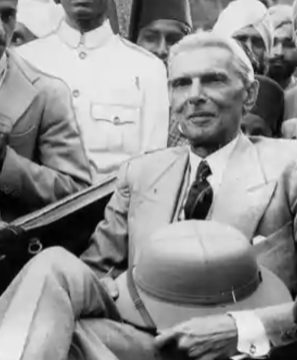Salil Tripathi in LiveMint:
 The peculiarity of hindsight is that it depends on the point from which you look back at Pakistan’s and India’s trajectories. In the early 1970s and till the late 1990s, as Pakistan itself broke up into two and generals and mullahs controlled its politics, India could afford to be smug. In 1992, the destruction of the Babri Masjid changed that, and the consequences of India’s 2014 election are there for us to see. Some Pakistanis may feel triumphant, but the virtue of Pakistani lawyer Yasser Latif Hamdani’s new biography, Jinnah: A Life, is that it takes a sober tone.
The peculiarity of hindsight is that it depends on the point from which you look back at Pakistan’s and India’s trajectories. In the early 1970s and till the late 1990s, as Pakistan itself broke up into two and generals and mullahs controlled its politics, India could afford to be smug. In 1992, the destruction of the Babri Masjid changed that, and the consequences of India’s 2014 election are there for us to see. Some Pakistanis may feel triumphant, but the virtue of Pakistani lawyer Yasser Latif Hamdani’s new biography, Jinnah: A Life, is that it takes a sober tone.
In clear, if not sparkling, prose, Hamdani, an admirer of Jinnah, offers a nuanced perspective of the man who began as an ambassador of Hindu-Muslim unity and ended up being instrumental in dividing India along religious lines. The book adds to the growing body of literature around Jinnah, building on the work of Stanley Wolpert, regarded as the most important biography till Ayesha Jalal’s detailed and absorbing biography, and the indifferent book by former BJP minister Jaswant Singh, which gained notoriety for all the wrong reasons.
More here.
